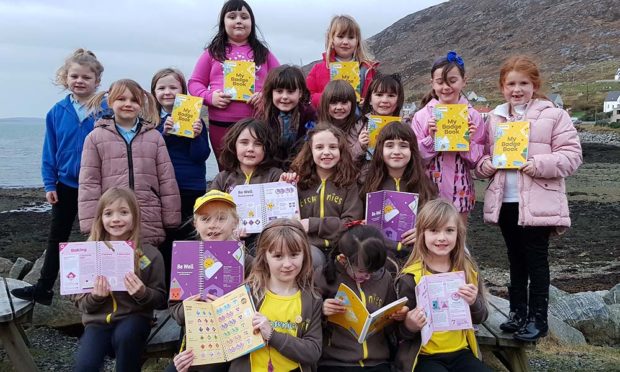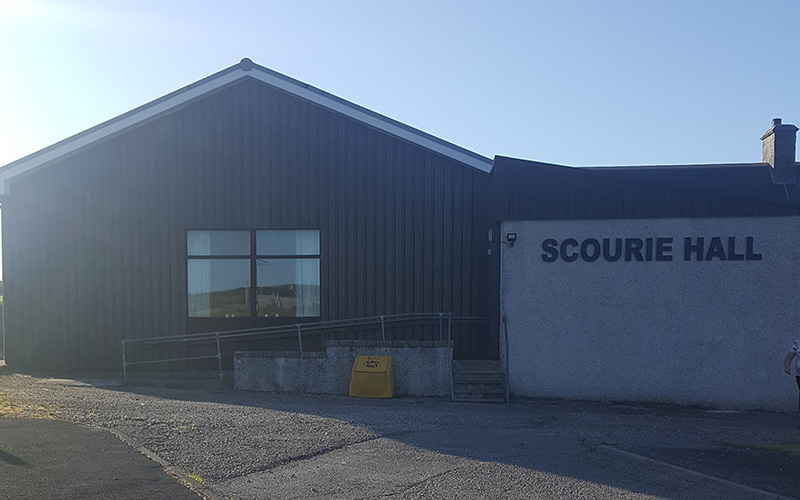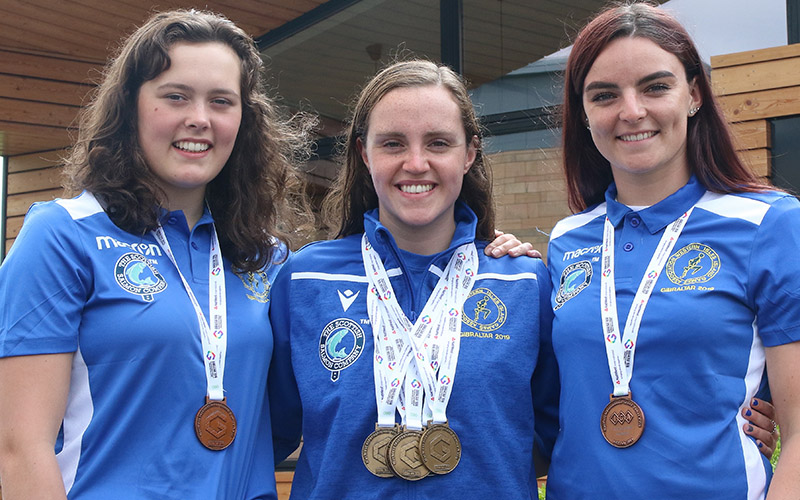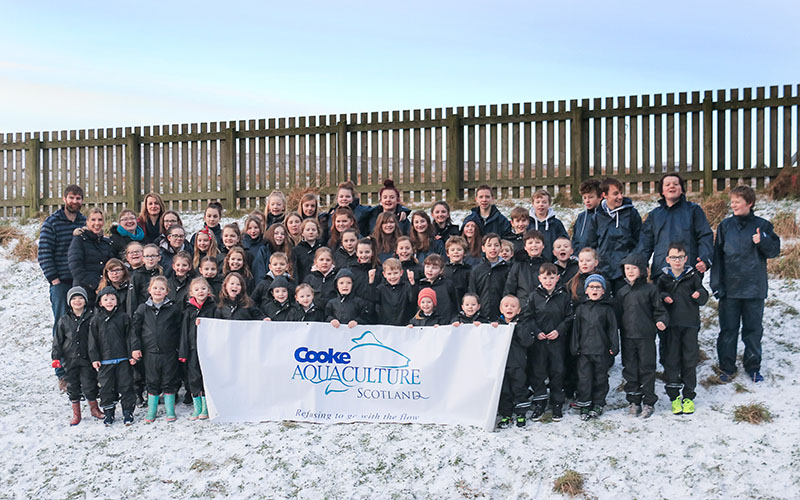An international sports competition, rewiring and broadband are not usually associated with Scotland’s thriving salmon sector. However, as several highland communities are discovering – local salmon producers are transforming their towns by investing in these much-needed local projects.
Scottish salmon brings in a huge amount of revenue to Scotland as it is not only one of our, but the UK’s, biggest exports.
It’s partly because of the support from local communities that the salmon sector has achieved this growth and success around the world, so, in a bid to give back, salmon producers are investing in local projects.
One example is Loch Duart which has been improving connections in the North West of Scotland – in more ways than one.
It is currently working to improve wireless broadband in Scourie, something that had been causing problems for businesses, locals and visitors for many years. At Scourie Hotel, it was becoming so much of a hindrance, that co-owner Charlotte Campbell decided to upgrade for hotel guests at a substantial cost. But now – just three miles away – Loch Duart has stepped in and rolled out the project to benefit the whole community.
The hotelier said: “Our connection is very poor, so improving the communications will be a huge improvement for the village and allow businesses to be more productive.
“We are grateful to Loch Duart, a lot of staff and suppliers stay here and we certainly use a lot of produce in the hotel – salmon is permanently on our menu.”
And, when Scourie Village Hall needed rewired at a cost of around £20,000 in 2017, they applied to Loch Duart for funding and the independent salmon farming company put up £10,000 towards it while they raised the remaining amount from other sources.
For Iona Shaw, chair of Scourie Village Hall, it was a much-needed boost.
Iona explained: “The old wiring wasn’t up to scratch so we needed it rewired to get our Public Entertainment Licence. If we didn’t do this, the hall would have had to close. Rewiring the hall meant we could carry on and have dances, ceilidhs, school shows, craft fairs, Burns events, etc. – it is the hub of the community.
“It was a pleasant surprise to receive the funding from Loch Duart and had such a huge impact on the village, all these things wouldn’t be happening if it wasn’t for them helping with the rewiring.”
Meanwhile, in the Western Isles, where it is an integral part of the local economy, The Scottish Salmon Company (SSC) is also having an impact on its community. In the three years since it launched its Community Fund, dozens of local groups and good causes have benefited, from Macaulay College in Lewis to Brownies and Guides in Stornoway. Aimed at supporting health and wellbeing in the areas where its teams live and work, the Fund is driven by staff who nominate causes in their local communities that they are involved with or passionate about.
SSC has sponsored the Western Isles Island Games Association since 2015 and last year it flew its 43- strong squad to compete in Gibraltar at the biennial International Island Games.
Then in Orkney and Shetland, salmon farmers Cooke Aquaculture, are supporting wide and varied community projects there. In fact, the family-run business has donated a six-figure sum to small local initiatives within the last year.
In Orkney, Stronsay Junior High School has been a benefactor, as has the local swimming pool, as well as local charities, sports clubs, community halls, playparks, and food banks – Cooke even helped fund the purchase of a new MRI scanner for NHS Shetland and paid for new shower facilities to be built at the local fish market in Orkney.
Andrew King is headteacher at Stronsay Junior High School and is about to introduce a new reading and writing resource, part-funded by Cooke. Andrew is also involved in the running of the Community Swimming Pool so has seen first-hand the impact Cooke Aquaculture’s financial support has had.
He said: “It’s really brilliant. We have a development trust that has been supporting the school, but some funding has been curtailed so the income dropped off, but Cooke Aquaculture came along and have done a superb job.
“And, at the community-run swimming pool, lifeguards were recruited and trained at their own cost, but recently numbers have dwindled, but luckily Cooke Aquaculture stepped in and funded our latest round of training. This will allow us to train six new lifeguards, which are desperately needed because if they weren’t trained the swimming pool wouldn’t be open.
“Not only are they developing the curriculum, but the swimming pool, the community hall, and they are giving people life chances on the isle.”
Colin Blair, managing director of Cooke Aquaculture Scotland, said its community benefit fund helps respond to the needs of local people and explained why it is important for the family-run business to do this: “As a family-owned business we care about strengthening coastal communities. Our staff belong to these communities and we want to help to maintain them as vibrant, sustainable places to live and work.
“We’re just glad to be able to play our part and try to make a difference.”
You can find out more about Scottish salmon farming, its importance to rural communities, the Scottish economy and how it can contribute to the green recovery – as well as the health benefits of eating fresh farmed salmon – on the Scottish Salmon Producers’ Organisation (SSPO) website, by clicking here.



